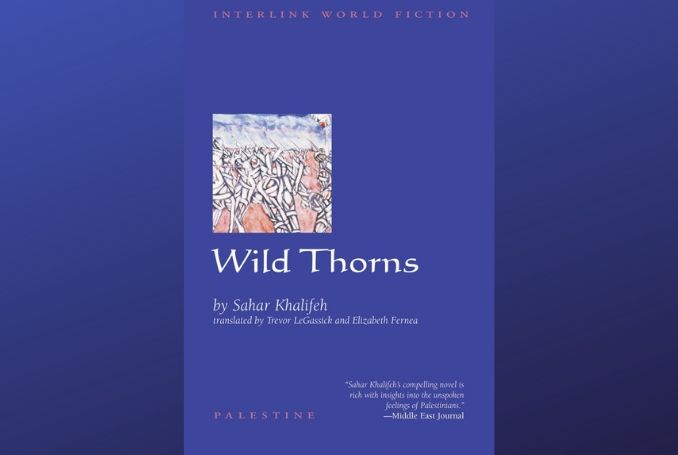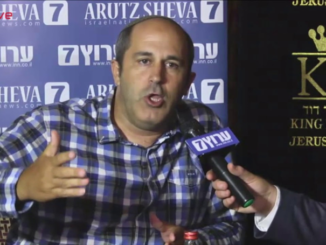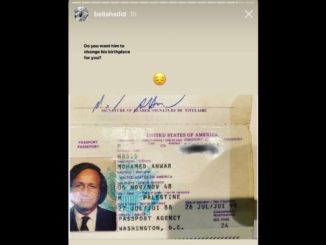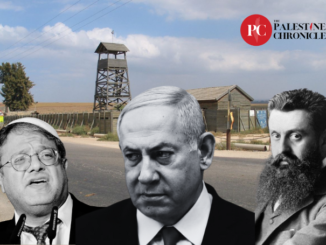
(Wild Thorns. Sahar Khalifeh. Interlink Books, New York, 1985)
For decades Palestinian literature has shown promise of making the leap from cult to major religion. There have been three leading prophets: Ghassan Kanafani, Mahmoud Darwish, Emile Habibi, and perhaps a fourth, Edward Said, whose international stature as a thinker and literary critic helped prime the West for Palestinian envoys to stick the landing on the sweat-sodden gym-mat of “Literature” this side of the Mediterranean, the same way Chinua Achebe and Salman Rushdie have since succeeded in doing before the very same English-speaking judges. A sweat-slick gym-mat, mind you, wherein the lofty standards over at Barnes and Noble “Literature” has been demoted to “fiction,” thus establishing a mysterious parity between the James’s Baldwin/Joyce and the James’s Franco/Patterson, the last of whom’s 10 feet of shelf space have excommunicated Evelyn Waugh from the canon altogether.
The bar has, it seems, never been lower for novels or “fictions” to qualify to the same shelving as our former masters, and yet there are those who will argue that the fault of Palestinians to merge into the West’s bizarre and declining canon is on the Palestinians themselves who, as the argument goes, have yet to produce a writer with the same gifts and panache as an Achebe or a Rushdie. Like all points of contention in our hemisphere, this argument will go on generating itself out of the mouths of those who have never paid Palestinians or the integrity of their own argument the courtesy of actually reading Palestinian literature, and it will take no effort to keep this official line in power so long as those in the Palestinian solidarity movement continue to match their opponents in illiteracy in Palestinian letters.
It is within this reality that the masterly work of Palestinian prophets Kanafani, Darwish, Habibi, and Said alone comprise the pillars of the Palestinian canon, and their profiles the busts that adorn the pantheon of Palestinian letters, a temple that stands today almost exactly as it stood in the 20th century. That is, unchanged and rarely paid a pilgrimage.
And so, while by the electronic glow of cellphone and laptop screens our present age makes out the profiles of the future busts of this pantheon, like Remi Kanazi, Selma Dabbagh, and if all goes well with the Naguib Mahfouz Award-winning Velvet due out in September, perhaps Hazama Habayeb too, the minor literary prophets of the 20th century who have missed out on the visibility afforded by the technology and spike in interest in Palestine over the last few years remain consigned to their papyrus and obscure dwellings like the Dead Sea Scrolls or the Lost Gospels. They remain the underrepresented within the underrepresented, the unread within the unread, the unreviewed within the unreviewed.
Sahar Khalifeh is just such a case. Like many Palestinian writers who have tried their hands at masterful novels, films, paintings, sculptures, or other forms of creative accomplishment only to see their work return without sticking to the English-speaking psyche like so many boomerangs, or else fall stillborn on the desk of reviewers (if they’ve even made it that far), it has been the fate of Sahar Khalifeh’s work in this present age of “progress,” “solidarity,” and “representation of underrepresented cultures” to be rendered into the hands of Amazon customer reviewers, apparently the sole online authorities on Khalifeh’s work. It was therefore with the same shock and awe that Dr. Stephen Emmel happened upon the lost Gospel of Judas at a kiosk in Geneva (wherein it is revealed that Judas was ordered by Christ to betray him, anti-semitic charge of deicide thus absolved) that I happened upon Wild Thorns outside a panel discussion on Palestine in the Fine Arts Center of UMASS Amherst, being sold by the heroic excavators of Interlink World Fiction.
Published in 1976, one year after Emile Habibi’s classic The Secret Life of Saeed, the Pessoptomist (a novel whose front-cover blurb on my copy says it all: “an entertaining and thought-provoking minor classic,” undervaluation Kirkus Reviews’), Wild Thorns is a novel that possesses all the qualities of escape velocity necessary to launch it into the orbit not just of “fiction” but of Literature with a capital “L.” Here, beyond the heavily guarded airspace of Israel, and left to its own physics, it would leave much of our dull canon screaming behind it.
Wild Thorns is tight, linear, and, unlike so much of modern fiction with a lower-case “f,” it manages to marry two literary forces that were never meant to oppose each other: irony and plot.
And we get both from the start, beginning with Usama, one of several characters followed closely by Khalifeh. Usama is a romantic, weep-prone, former upper-class “Effendi” (or “Lord”), returning to Palestine via the Jordanian border under the guise of heroism: he’s joined an unnamed resistance faction and plans to liberate Palestine. Palestine, however, is not how he left it, as he soon finds out.
He sits in the backseat of a taxi-cab en route to the border convincing himself that he is no longer a sentimentalist, yet all it takes is the line of one song to reveal otherwise:
‘Those sad Northern nights!’
Why do these sad songs hurt so much? Is it because we are a romantic people? He’d never been romantic himself. At least he wasn’t any longer, or so he believed.
(This is pure denial on Usama’s part. It’s later revealed he grew overly attached to a goat as a child and wept and eulogized it upon its slaughter.)
How had he come to that conclusion? Training. Bullets. Crawling on all fours. Pulling in your stomach. Such things make you unromantic in thought and deed. Personal dreams evaporate, the individual becomes a single shot in a fusillade. You can be honed by experience to become a rocket, a guided missile.
That was the logic of it all. They’d said many things and so had we; logical things, historical equations imposed on the individual, making him a single number in the equation. A number. One among others. Thus the equation takes form scientifically, rationally, tangibly. Thus romanticism fades and dreams die. Yes, and poetry dies, along with passion. Everything becomes a link in the chain of the ‘cause’ itself. But…
‘Sad northern nights…’
The words still sliced into him, into his sensitive, lonely soul.
The “cause” referenced here may need a little explanation, though engagement with or resistance to the “cause” constitutes almost the entirety of Wild Thorns’ plot. This is 1970s Palestine, an age many look back upon with a nostalgia at Palestine’s hope of liberation, intellectualism, and its unity both nationally and across the Arab and non-Arab world (Usama has been, as they would now term “radicalized” in Lisbon, for instance). This is the era of the PLO (Palestinian Liberation Organization), when Palestinian film was blossoming, when resistance was most in dialogue with the international, secular, Marxist political theories churning through Italy, South America, and rebellious fringes in Eastern Europe. Religious fundamentalism was, though around the corner of the PLO’s ’82 defeat in Beirut, not at the fore of the armed struggle for Palestinian liberation. Yet readers will not find any resistance faction like the PLO referenced by name. In a golden age of political involvement, Khalifeh takes no clear political stand, though she does have a dim view of Usama’s form of resistance, priming the ground for one of the latent and dialectical tensions of Wild Thorns: Can you resist the Occupation while resisting selling-out to ideology?
When we get interiority like the kind in the cab, it’s usually in this essayistic form and runs much shorter in length. Or it’s satiric, like this cliche sap of Usama’s, a man who in contrast to his romanticism plans to blow up the buses carrying his countrymen, friends, and family to work inside Israel:
Yes, when will those tender feelings die in me? I’ve had them all my life! This constant longing for the unknown, this feeling of melancholy that overwhelms me whenever I hear a song or smell a flower, and the sense of elation I feel at sunset.
Khalifeh is an excellent pace-maker and keeps the book clipping forward. We get descriptions of nature curtly, and only when we need them: “Through the window, he could see the sun’s rays spreading over the dark mountainsides, like stretch marks left on women’s bellies after they’ve given birth.” Thus, where another writer (and audience) might get predictably lost in Usama’s interiority here in the cab, or we might have the past interspersed with the present in the style of Kanafani’s Men in the Sun, we quickly find Usama in interrogation instead, where the black-comedy of Evelyn Waugh first emerges in the locale of the most dystopian of our modern-era’s absurdisms: the Israeli checkpoint.
A Palestinian woman begins screaming from behind a curtain, “Swine! You swine! You swine! Aah!” Usama is then prodded along by an Israeli whose accent “betrays his Iraqi origins,” telling him not to worry about the screams from the girl who is “a real dish, but a whore. We found a coded message under her wig. Off you go now, don’t be afraid.” Usama then sits with an Israeli soldier who is of Polish origins. He later speaks to an Israeli with red hair and freckles. By referring to the Israelis by their original nationalities, Khalifeh subtly establishes the most blatant of Zionist paradoxes, that a Jew born in Poland, Iraq, or San Fransisco (Naftali Bennet’s humble origins) has a right to live in Palestine, but a Palestinian born in Jerusalem does not.
In this, I’ll follow Khalifeh’s lead: While the Pole grills Usama about why he wants to move back to Nablus, or, as he refers to it in Hebrew (deploying the lingual, semiotic side of the occupation), “Shekem,” like a debauched Greek Chorus the Palestinian woman’s screams of “swine” lay in wait to interrupt again:
“We were living in Tulkarm; then my father died and my mother moved to Nablus.”
“Why did your mother move to Shekem?”
“She likes Nablus.”
“Why does she like Shekem?”
“She’s got lots of relatives in Nablus.”
“And why have you left the oil countries to return to Shekem?”
“I’m returning to Nablus because my father died.”
…
“And what are you going to do in Shekem?” he asked.
“I’m going to look for a job in Nablus.”
The shouting and screaming broke out again. The Arab girl was sobbing while a female Israeli soldier yelled, “Open up your legs! Open your legs! I’ve to see up there! Open your legs!”
There came the sound of slaps: “You swine! You swine! Oh! Oh!”
The Pole frowned and wiped his blonde moustache. He started again: “And what have you been doing since you left?”
Usama’s interrogation continues in this darkly, slapstick way, the woman’s screams breaking in wherever he is within the checkpoint. Khalifeh uses farce and tragedy in the Wavian manner, the somewhat light, farcical structure of events pushing the tragedy to darker and more painful depths than it could otherwise, achieving a truer representation of the Palestinian reality. Thus a consistent refrain throughout the book: “Is this a tragedy or farce?”
Khalifeh is not afraid to deploy wit, nor is she afraid to apply to her characters the Wavian treatment of original sin – that is, unrelenting and unappeasable suffering at the rate of exponential increase, a state not unlike the sinless reality of Palestine. (Though Usama, with his unapologetic plans to martyr his own countrymen, maybe asking for it slightly).
Thus Usama’s disappointment in Palestine continues at his own expense as he goes to his family farm, once run by his cousin Adil al-Karmi, to inquire why agrarian workers (some 70,000 Khalifeh informs us) have deserted agriculture for day-labor inside Israel. (One should keep in mind these kinds of workers are the kinds Usama, of the upper-class, used to profit from, so his pain at Israel’s exploitation of Palestine is a pain both financial and patriotic). Usama’s denial of his own romanticism is the butt of the joke again, and just how out of touch he’s become with Palestine comes into sharper relief. As he approaches the deserted family farm “he found his eyes misting over with tears as he called out, ‘Is there anybody here?’” After some time, the elderly keeper of the farm, Abu Shahada, finally approaches Usama, in the early stages of dementia, or else the psychological result of the Occupation’s obliteration of the Palestinian past. It’s pure torture for Usama:
‘Abu Shahada? Don’t you recognize me? It’s Usama, Abu Shahada. Don’t you know who I am?’
The old man spoke with difficulty, his toothless mouth chewing out the syllables: ‘Uthama? Uthama who?’
Usama presses Abu Shahada about the whereabouts of Adil, urging him to remember the days when they were children, playing in the fields and Abu Shahada carried Usama on his back.
Then he added, quickly, looking around him, ’And speaking of Adil, where is he?’
The old man also looked around, ‘How would I know?’
Resigned, Usama is left to take solace in the fact that at least the farm dog Masoud remembers him, until:
After a long silence, the old man seemed to rouse himself from a deep slumber.
‘Welcome!’ he shouted. ‘And where’s Adil these days?’
‘I’m the one who’s asking about Adil,’ Usama objected, surprised.
Abu Shahada’s memory-loss makes Usama’s romanticism and pretensions to heroism a prescient punchline in a revered age of promising armed-factionalism. Though Khalifeh’s humor has its limits:
‘You cared for every tree in this orchard as if it was your own son Shahada, and you say you don’t know [who looks after the farm]?’
The old man didn’t answer. He appeared to be falling asleep.
‘Wake up, old man!’ cried Usama. ‘I said, who looks after this land now?’
The old man looked up at Usama, squinting as if to see him more clearly. ‘Is this land ours?’ he asked coldly.
Usama, uncomprehending what has happened to the agrarian economy after the Occupation, explodes outwardly in rage, while inwardly declaiming Abu Shahada’s ignorance and old age. Abu Shahada explains the present circumstance. Work in Israel has been imposed on Palestinians. The wages are better and the work is easier and actually less demeaning than in farming: “‘Lots of money… And none of that “come here, you son of a bitch”… Nobody stands over you, making you work like a donkey from morning till night.’” Palestine has changed. It has gone from an agrarian, pre-capitalist society straightaway into a permanent Israeli underclass, where the half-Israeli wage worked for is a definite raise from the more feudal-like livelihood offered by Effendi’s like Usama. What Abu Shahada does not comprehend himself, but expresses in a spat with Usama, is what a deliberate ploy this is by the Israeli Occupation to weaken the Palestinian ties to their land and hasten its confiscation:
‘Why are you so angry at me? I’m just a hired hand. I’ve been here all my life. I don’t own any land. I don’t own anything. My son Shahada was a hired hand too. He still is. The land isn’t mine or Shahada’s, so why should we care about it? Why should we die for it?…Nobody ever came and asked about us when we were nearly dying of starvation. But now, now you come! Why?’ [Emphasis added]
If I might play the sommelier for a moment, here is Andrew Ross’s analysis from Stone Men: The Palestinians Who Built Israel, a 2019 study I’d recommend pairing with Wild Thorns for an understanding of the Palestinian question as it is driven by economics, a neglected topic in solidarity circles:
From the long term perspective of Zionist settlement, the advantage to Israel of employing Palestinians from the Occupied Territories is clear. Rural workers from landed families have been converted into wage laborers; as a result, they have gradually lost their vested interest in the land, making it easier to expropriate. A family can earn much more by sending their sons out to a construction site in Tel Aviv or a factory in Ma’ale Adumim than by eking out a hardscrabble livelihood from their small holdings. Over time, the plots are either neglected, and risk being seized as “state land” in accordance with the refurbished Ottoman law (makhlul) of underutilization, or they are sold to settlers because they are more valuable as commodities than as a source of agricultural revenue… Between 1967 and 1993, during the period where the settlement movement made its first big gains, the Palestinian workforce in agrarian employment dropped from 40% to 20%.
Thus Khalifeh opens Wild Thorns by creating a complex economic and political web of class conflict and dueling ideologies through which her characters move through laterally. By swinging the narrative from character to character (not unlike Waugh), from the uneducated Zhudi who day-labors in Israel and becomes a Marxist in prison, to the youth Basil who does not yet understand the import of his resistance and becomes normalized to non-ideological, somewhat masochistic violence in prison, to Abu Sabir who loses his fingers in an Israeli factory and earns compensation through the courts, Khalifeh moves dialectically from ideological pole to ideological pole, resistance argument to resistance argument, no side exactly achieving liberation as the 1970s political parties of Palestine then envisioned it.
The one who finally emerges as the character most resembling a hero or protagonist (however little mileage those terms get in Wild Thorns) is Usama’s cousin Adil. He stands in the center of the dialectical tempest and resists bowing to any ideology. He understands the Occupation as a new manacle, unlike Usama. A resistance that does not recognize how the economic structure of Palestine has changed will not succeed. Thus, he urges Abu Sabir through the Israeli courts to win compensation for the loss of his fingers, opening a new avenue of economic redress in Palestinian resistance. He alone is willing to cut ties with the past, accept the reality of the present Israeli reigns, and fight from within them.
Khalifeh’s message is clear: the true way forward toward peace, though not at all obvious or easy, does not merge with fixed ideology, or the Palestinian political parties as they stood in the 70s. (One does not have to wonder long how she feels about the political climate today in Palestine).
A truer extrapolation of Wild Thorns cannot be achieved here. Though only 207 pages, the care and attention this novel has earned by quality and vision alone befits more a full-fledged study of Khalifeh and her work. Those who have already done the heavy lifting on Amazon (eek) have expressed confusion at the structure of Wild Thorns.
This is not surprising, as anything with plot seems to confuse contemporary readers. Plus the book is not geocentric, focusing solipsistically on one character, but is heliocentric, expressing the “separate dimensions” and realities of each Palestinian, a phrase attributable to Adil. In truth, the novel could not be simpler to follow or more accessible. And the paradoxes present do not distract but stimulate: resistance is masochism (it kills more Palestinians than Israelis), survival is betrayal and exploitation (the workforce has become a convenient Israeli underclass). Another Amazon authority wrote simply that the book does not have a happy ending.
It is not optimistic, sure, but that is not to say that it does not perform one of the most masterful truth-tellings on Palestine. My God, this is a novel. It teaches without didactics and entertains through a black-comedy that reflexively sets the mind toward intellectual stimulation, that is, toward thinking. In this sense, Khalifeh has no living equal. Heaven forbid one should come away spiritually and morally fatigued like the subjects of the novel, not quite sure what the next step forward is, the spirit declining yet still with will enough to speak:
The girl’s voice rose again from the strip-search cubicle, sounding weak now, hoarse and distant, but still audible: ‘You swine…’
– Nicholas Vincenzo Barney is an American writer, journalist, and advocate for human rights in Palestine. After the death of a close friend from the West Bank, Nicholas V. Barney has made several trips to Palestine and has spent considerable time living with Palestinian families. He contributed this article to the Palestine Chronicle.







